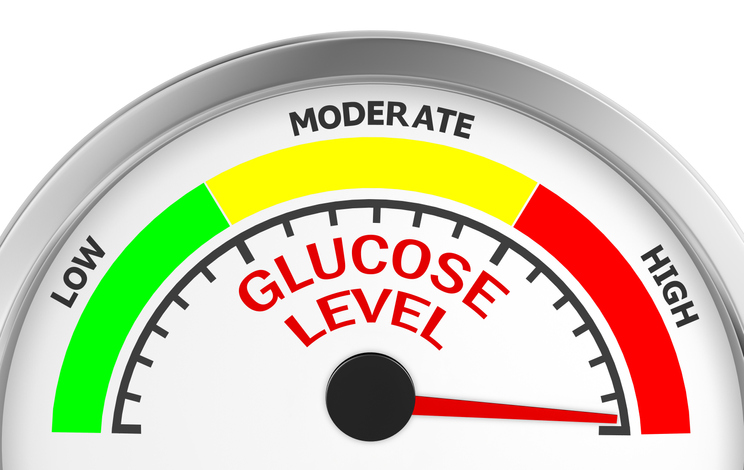Managing blood sugar levels is important for maintaining good health and warding off health issues like diabetes. Many believe that limiting carbohydrate intake is the only way to control blood sugar levels, but this is not true. There are several other effective strategies that can be used in conjunction with a well-balanced diet. The following strategies take a holistic approach to health and wellness. They emphasize simple lifestyle changes that can help control your blood sugar levels, promote weight loss, and boost overall health.
Increase Your Physical Activity
Exercise Your Way to Lower Blood Sugar
When it comes to efficiently managing your blood sugar levels, your weight and insulin sensitivity are key factors. Introducing regular exercise into your routine not only promotes weight loss but also enhances your cells’ responsiveness to insulin. It’s simple – the more sensitive your cells are to insulin, the more effective they become in drawing sugar from your blood and maintaining balanced levels.
Broadly, what exercise does is to increase the insulin sensitivity of your cells, changing the way they interact with glucose. Consequently, these optimized cells are able to take sugar from the bloodstream more effectively, helping keep your blood sugar levels in check. This mechanism underscores the importance of regular exercise in promoting better management of blood sugar levels.
There’s a wide range of physical activities that can contribute to improved insulin sensitivity – you aren’t limited to the gym. Everyday exercises such as brisk walking, cycling, swimming, strength training, and yoga can make a significant difference. The key is consistency, so aim to pick an exercise activity you enjoy that can become part of your routine.
If you’re wondering where to start or how to integrate exercise into your life more effectively, the Mayo Clinic provides guidelines that can help. These guidelines can be a valuable resource in learning how to use exercise as a tool for more efficient blood sugar control. Link
Remember that while adopting a healthier lifestyle incorporating regular physical activity can be a powerful step towards better blood sugar control, it’s strongly recommended to consult with a healthcare professional or specialist who understands your health history and current status. They can help tailor an exercise and wellness plan to meet your goals safely and sustainably.

Stay Hydrated
Drinking enough water is an often-overlooked but vitally important step in controlling blood sugar levels.
When you are hydrated, your kidneys have the ability to process and flush out excess glucose through urine.
This cleansing process not only helps to reduce high blood sugar levels but also is vital for overall bodily function.
According to a study by National Library of Medicine , regular water intake was associated with a lower risk of developing hyperglycemia.
The fascinating link between hydration and blood sugar control is that the more hydrated you are, the better your body can regulate its sugar levels.
It’s a small step that can have a big impact on your health.
But how much water should you be drinking to reap these benefits?
While it can vary depending on body size, climate, and physical activity levels, the Institute of Medicine provides a general guideline: around 3.7 liters for men and 2.7 liters for women each day.
This includes all beverages and foods.
It might seem like a hefty goal, particularly if you’re not used to drinking large amounts of water.
But one way to ensure you’re meeting your hydration needs is to make water your beverage of choice.
It’s calorie-free, helps to fill you up, and is readily available.
Drink water before, during, and after meals to help manage your thirst and hunger signals.
Or carry a bottle with you throughout your day, taking sips as you work or run errands.
It’s a simple change that could lead to significant results.
Remember, while drinking enough water isn’t a cure-all for high blood sugar, it’s one of many steps you can take towards healthier glucose control.
As always, individual needs can vary, so be sure to talk to your doctor about the best hydration plan for you.
Learn more about the importance of drinking water from Mayo Clinic

Get Enough Sleep
Catch More Zzz’s to Control Your Blood Sugar Levels
Staying up late, tossing and turning in bed, or simply not getting enough sleep can result in more than just tiredness. It can also have a significant effect on your blood sugar levels. When you do not get enough sleep, it increases your body’s production of cortisol, a hormone that can lead to insulin resistance – a pivotal aspect when considering blood sugar control. Insulin resistance makes it hard for your body to use insulin efficiently, thus making your blood sugar levels go haywire.
Another important factor to consider is that when you’re sleep deprived, your body craves unhealthy food, often high in sugar and fat. This can be detrimental to your blood sugar control efforts. So, getting those desired 7 to 8 hours of shut-eye not only recharges you, but also plays an essential role in regulating your blood sugar levels.
Perhaps it’s time to prioritize your bedtime routine. This can be as simple as setting a consistent sleep and wake schedule, adhering to a nightly bedtime relaxation ritual, or ensuring your bedroom environment promotes sleep.
Are you constantly struggling with getting enough sleep? Don’t fret, you aren’t alone. The good folks over at the Harvard Public Health have assembled an array of practical tips on how to improve your sleep routine and consequently, increase the hours of restful sleep you get per night. Link. Making these simple changes can help regulate your body’s hormonal balance and improve your blood sugar control. Quite simply, a good night’s sleep is just as crucial as your medications and diet in keeping those blood sugar numbers in check.

As we explore ways to manage and control blood sugar effectively without reducing carb intake, it’s clear that good practices revolve around healthy lifestyle adjustments. Regular physical activity, sufficient water intake, and enough sleep play crucial roles in blood sugar control, demonstrating that the path to healthy living is multifaceted. By incorporating these practices into your routine, you can confidently take steps toward not only controlling your blood sugar, but also improving your overall wellbeing. Remember, these efforts, while significant, should be paired with regular medical checks for optimal results. Living a health-conscious life is a comprehensive endeavour—one that rewards you with wellness, vitality, and longevity.
